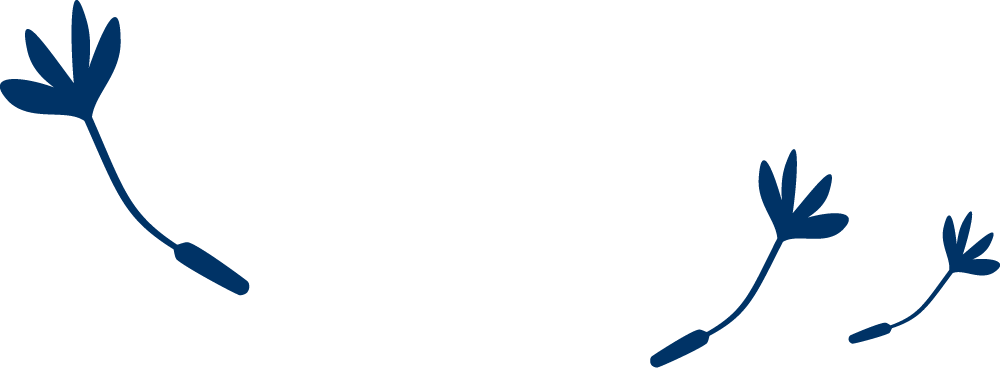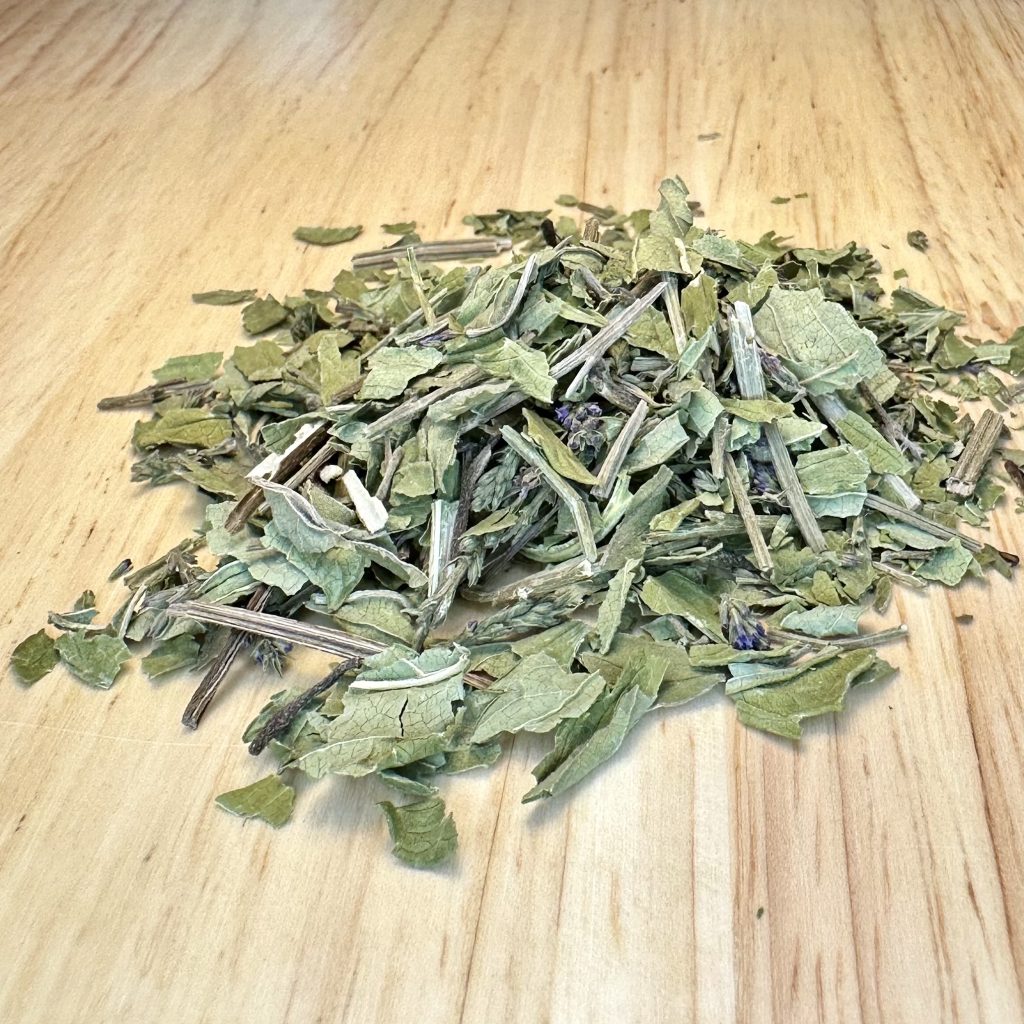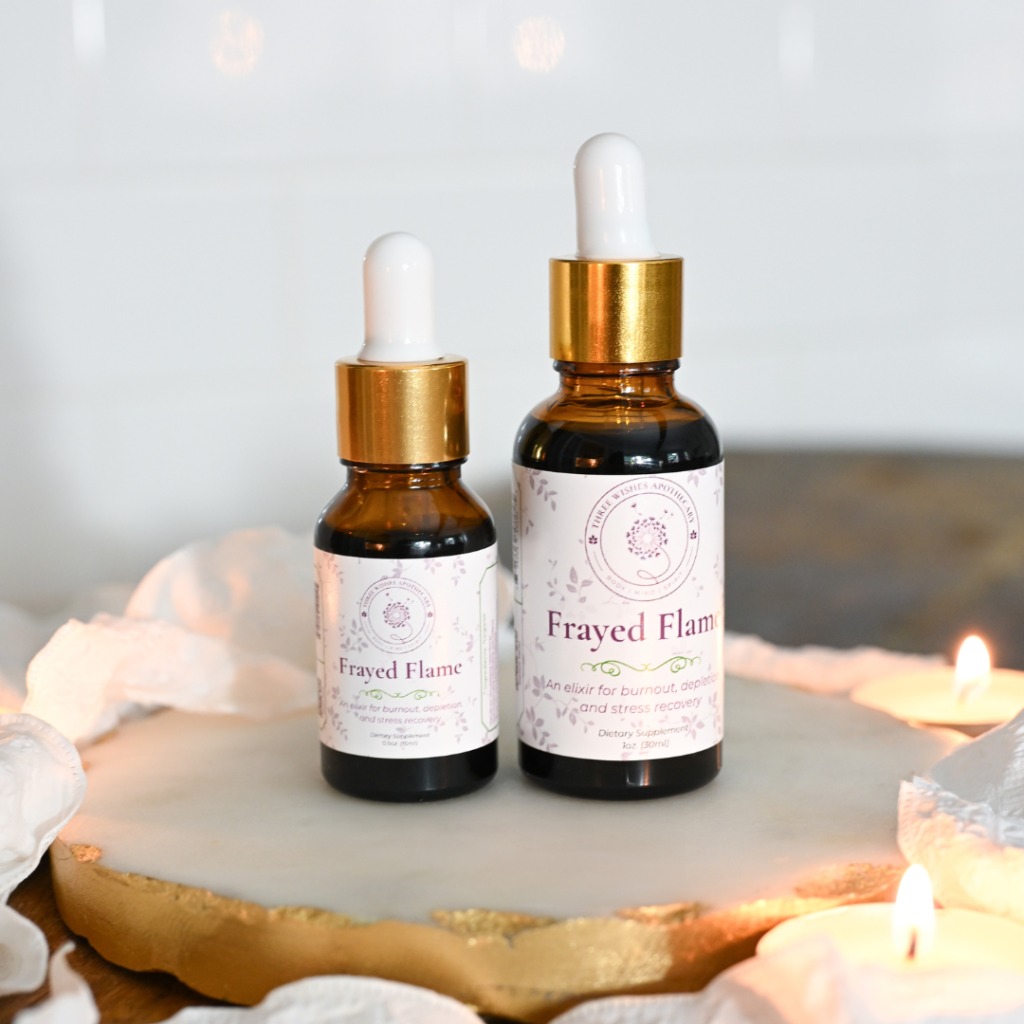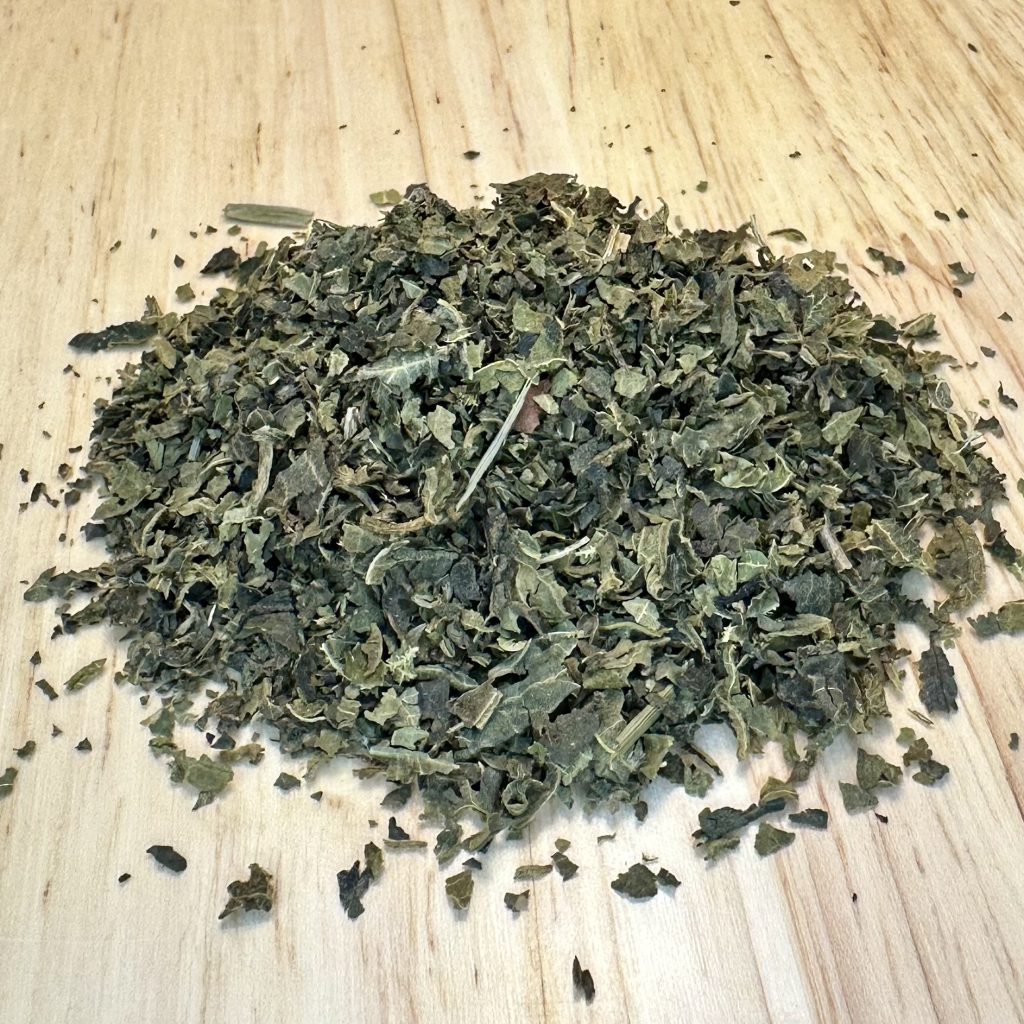Medicinal Action

Nervous System Health
Nervous system health encompasses the proper functioning of the brain, spinal cord, and peripheral nerves, ensuring efficient communication between the body and the mind. A healthy nervous system supports cognitive function, emotional resilience, and physical coordination. Herbs like ashwagandha (Withania somnifera), oatstraw (Avena sativa), and bacopa (Bacopa monnieri) are often used to nourish, strengthen, and balance the nervous system. Maintaining nervous system health involves a combination of balanced nutrition, stress management, adequate sleep, and physical activity.

Products containing Nervous System Health
Discover our collection of artisanal salves for holistic healing.
Blue Vervain (Verbena hastata)
Sustainably grown and harvested through regenerative agricultural practices on small U.S. farms dedicated to soil health, biodiversity, and ethical stewardship.
Sourced directly from the grower for quality and freshness, then hand-packaged in small batches to preserve vitality.
Sold by the ounce. Example: Quantity 4 = 4 oz.
Frayed Flame Tincture
A grounding formula for nervous system depletion — helping you soften, slow down, and come home to yourself.
Monographs with the (Nervous System Health) function
Prickly Ash
Prickly Ash Bark (Zanthoxylum americanum) is a dynamic, warming tonic that encourages movement, clarity, and vitality. Traditionally used by Indigenous peoples and early North American herbalists, it is valued as a circulatory stimulant and nervine tonic — an ally for those who feel sluggish, chilled, or stagnant.
This vibrant bark enlivens the body’s rivers of circulation, stimulating both blood and lymphatic flow. Its gentle tingling on the tongue reflects its activating nature — awakening digestion, supporting healthy warmth, and promoting awareness in the periphery.
Energetically, Prickly Ash embodies the spark of renewal. It helps encourage a sense of warmth and natural circulation throughout the body, restoring aliveness and gentle momentum.
Crafted through a 60% organic cane ethanol extraction, this tincture preserves the bark’s full aromatic and bitter complexity, capturing its ancient wisdom and vital fire.
Dosage
Take 2-4 mL (approximately 20–40 drops) up to three times daily in a small amount of water or directly on the tongue.
Best taken before meals to support circulation and digestion, or as needed when feeling cold or energetically sluggish.
Pairs well with warming teas and practices that move energy — such as walking, breathwork, or gentle stretching.
Cautions
Generally well-tolerated at suggested dosages. Consult a qualified healthcare provider before use if you are:
-
Pregnant or nursing
-
Experiencing acute inflammation or hot, dry conditions
-
Managing gastrointestinal irritation or ulcers
-
Taking medications that affect circulation or blood clotting
Avoid excessive use; Prickly Ash is a stimulating herb best used in moderate amounts.
Ashwagandha Root
A deeply restorative adaptogen, Ashwagandha Root (Withania somnifera) has been treasured in Ayurvedic tradition for centuries for its ability to strengthen resilience and restore balance. Known as a “rasayana” or rejuvenative tonic, it supports the body’s natural capacity to adapt to life’s daily stressors and maintain equilibrium across the nervous, endocrine, and immune systems.
This tincture offers a stabilizing, grounding energy — not stimulating, but harmonizing. It helps moderate the body’s stress response, nourishing depleted reserves and supporting healthy adrenal function over time.
Crafted through a 60% organic cane ethanol extraction to preserve its full spectrum of constituents, this formula embodies the adaptogenic principle described by herbalist David Winston: to normalize rather than force, to strengthen rather than overstimulate, and to build vitality that endures.
Like the resilient root itself, Ashwagandha invites you to slow your rhythm, find your center, and cultivate calm strength from within.
Dosage
Take 2–4 mL (approximately 40–80 drops) up to three times daily in a small amount of water or directly on the tongue.
Best taken consistently over time for cumulative benefit, particularly during periods of emotional strain, fatigue, or high output.
Pairs well with restorative practices such as breathwork, yoga nidra, journaling, or quiet moments in nature.
Cautions
Generally well-tolerated. Consult a qualified healthcare provider before use if you are:
-
Pregnant or nursing
-
Sensitive to plants in the nightshade (Solanaceae) family
-
Managing hemochromatosis (excess iron) or hyperthyroid conditions
-
Taking sedatives or thyroid medications
Discontinue use if any adverse effects occur.
Nettle Leaf (Urtica dioica)
Our sourcing partners uphold fair wages, safe working conditions, and inclusive practices that value the hands and hearts behind each harvest.
Every bag supports small-scale regenerative growers and the renewal of our soil, communities, and connection to the earth.
Nettle has a long tradition of use across Europe and Asia as a strengthening spring tonic, valued for its ability to “cleanse the blood” and restore vitality after the winter months. Fresh nettles were sometimes used for urtication — intentionally brushed on the skin — to stimulate circulation and relieve joint pain or stiffness.
Current Uses:
Nettle leaf is now widely recognized as a nutrient-rich herb, abundant in vitamins A, C, K, and minerals such as calcium, magnesium, and iron. The leaf is taken as tea, infusion, or food to replenish nutrients, support general health, and gently build strength. Its anti-inflammatory actions make it a key ally for easing arthritis, joint pain, and muscle soreness. Many herbalists recommend nettle leaf for reducing seasonal allergies and supporting clear, healthy breathing, likely due to its influence on histamine pathways.
Nettle leaf is also used to encourage healthy kidney and urinary function and is considered mildly diuretic, supporting the removal of excess fluids. Externally and internally, nettle leaf has been used to support healthy skin and hair, helping reduce dandruff, strengthen hair, and soothe skin conditions such as eczema.
Nettle root is distinct in its action, most notably used to support urinary flow and prostate health in cases of benign prostatic hyperplasia (BPH). It is also considered mildly astringent and has been traditionally used to address excessive bleeding.
Nettle seed is prized as a nutritive tonic, rich in fatty acids and micronutrients. Contemporary herbalists use nettle seed as a rejuvenative herb, sometimes referred to as an adaptogen, to support energy, endurance, and overall vitality.
*To learn more about this plant’s traditional and modern uses, energetics, and potential contraindications, visit our Materia Medica section and search for this herb by name. There, you’ll find detailed notes on safe use and preparation methods.




